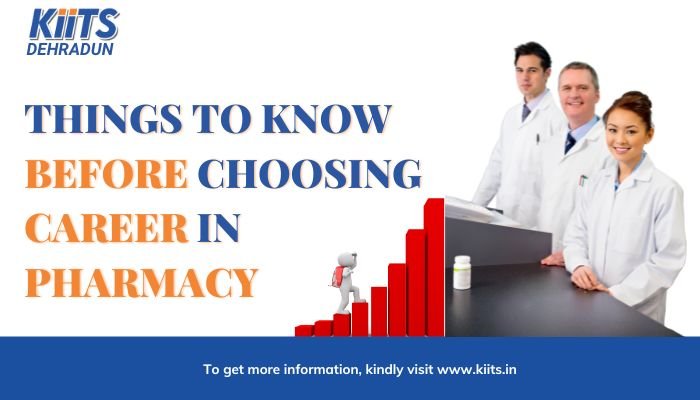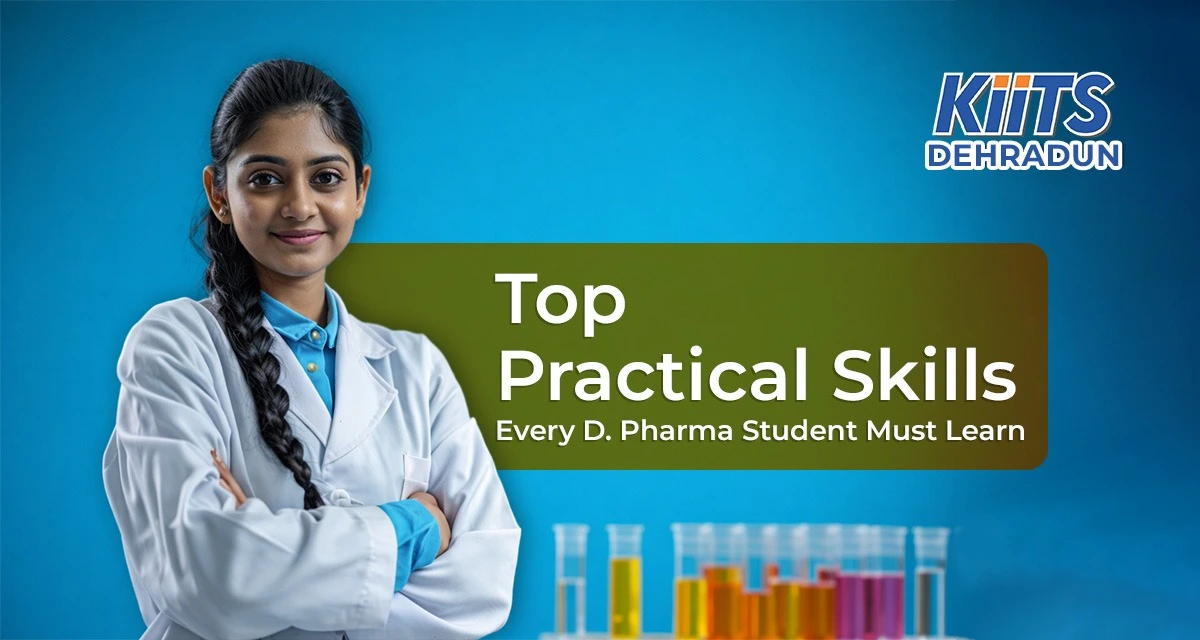Essential Factors to Consider Before Pursuing a Career in Pharmacy

A career in Pharmacy — a field that is constantly taken for granted, yet has the pivotal role of approving safe and effective use of medications. There are key elements to think about when starting your journey toward becoming a pharmacist, in order to align with personal interest and goals, but also the state of healthcare in general within the United States.
Pharmacist Role in Healthcare
Pharmacists are the stewards of managing medications, drawing from their knowledge in pharmaceuticals to guide patient care. Not only do they provide medications, but can also educate patients about their correct usage and side effects. Pharmacists also work with healthcare providers to maximize care outcomes while ensuring there is not harm to the patient.
Academic Requirements and Career Prospect
Requirements for Pharmacist Career in-depth schooling and education Often, candidates choose to aim for a Doctor of Pharmacy (Pharm. Doctor of Pharmacy (Pharm. D.) is a degree that requires four years of undergraduate work followed by an additional four years in the pharmacy program. Furthermore, others decide to complete a residency program to acquire advanced skills in areas such as clinical pharmacy, ambulatory care or geriatrics.
Job Outlook and Opportunities
The demand for the positions in joked improved as we are seeing medical assistance, and through population grows older. According to the Bureau of Labor Statistics, future growth prospects for this career are good across all settings — from retail and pharmaceutical companies to hospitals and government agencies.
Salary and Compensation

Pharmacists jobs generally pay well considering the stress levels and academic qualifications needed. The average salary of a pharmacist (US News & World Report) earns one of the best wages, with highly contingent income opportunities as they advance and specialize in niche areas of pharmacy practice.
Work-Life Balance and Flexibility

Complete work-life balance and flexibility that pharmacy delivers entirely, helping you to adjust the schedules based on your personal needs without compromising on professional front. Pharmacists can work part-time or choose alternative employment opportunities to give themselves more autonomy and gratification.
Adaptable Work Schedules
Most 24-hour pharmacies have shift pharmacists. During the early part of your career, you may have to work midnight hours, weekends and holidays depending on how often the company needs to schedule outages. Over time, later in your career and more established you will be able to have some control over when you work He can work set schedule in local medical clinics or neighborhood based healthcare centres.
Ethical Considerations and Professional Integrity
Pharmacy practice is built upon integrity and ethical conduct. Pharmacists have access to sensitive data and are held to the highest ethical standards to protect patient confidentiality and ensure professional behavior. Adherence to ethical standards is essential in the trust and credibility of pharmacist-patient rapport.
Growing Need for Qualified Experts
Recently, the pharmaceutical business has experienced a tremendous boom, which has increased demand for individuals with the necessary training and experience. As these institutions concentrate on skill-based and industry-synced education, there are numerous career prospects on a global scale for trained individuals who have studied from a top pharmacy college in Maharashtra.
Numerous Career Paths to Choose Among

The pharmaceutical sector offers a wide range of job prospects for professionals. Undergraduate and graduate pharmacy courses are offered by some of the top pharmacy colleges in Nashik. In order to succeed in a profession as a pharmacist in hospitals, private clinics, and nursing homes, undergraduate courses assist students in gaining a general awareness of such responsibilities. Students who want to continue their studies in the subject and contribute to the development of life-saving medications should take postgraduate courses.
The demand for interpersonal abilities
Pharmacists deal with numerous clients daily. Patient-Oriented Pharmacists The main qualities a pharmacist should have are people skills so they can assist the patients without snapping because of course all the clients/patients will be there not hundred perfect and most likely worry warts about their own well being. Pharmacists need to give the correct answer in a professional way, make them feel safe and print them out that prescription right away.
Practical Work Requirements for Career in Pharmacy
Depending on their job profile, the majority of pharmacists spend a lot of their early professional time moving around. Pharmacists must be highly hands-on in their daily work to check inventory, assist patients with prescriptions, and communicate with patients. As a result, pharmacists cannot anticipate having a lot of free time at work every day.
Technological Advancements in Pharmacy Practice

The landscape of pharmacy practice is continually evolving, driven by technological advancements that enhance patient care and streamline pharmacy operations. From automated dispensing systems to electronic health records, pharmacists leverage technology to improve medication management, optimize workflow efficiency, and enhance patient safety.
No Room for Errors
A pharmacist reading out a prescription cannot make a mistake. Their choices could be the difference between life and death if they wind up giving patients the wrong prescription. Therefore, while responding to a patient, pharmacists should always read prescriptions carefully, pay close attention, and, if in doubt, double-check with the patient about the nature of their medical problem.
Chemistry and Math Are Important
Chemistry allows pharmacists to mix chemicals more accurately, math helps them give the correct dose in the right quantity based on patient requirements. Since each case is so different, for any given medication the dosage will be different among patients depending on how bad their symptoms are. So at 10+2 level you will be to take math and chemistry if you are aspiring to become a pharmacist.
Adults Returning to Education
Developing a Practice of Excellence in Pharmacy: Continuous Learning and Professional Development Pharmacists take continuing education to learn about new therapies that come out, regulatory changes and best practices in pharmacy management. It only serves to fuel the fire of innovation, and uphold continue on some sort of paragon for ensuring that pharmacists are passing along an a-1 level quality care.
Conclusion
Choosing a career in pharmacy is a decision of profound significance, one that entails a commitment to lifelong learning, ethical practice, and patient-centred care. By understanding the multifaceted nature of the profession and aligning personal aspirations with professional goals, aspiring pharmacists can embark on a rewarding journey filled with opportunities for growth, fulfilment, and impact in the healthcare landscape.








